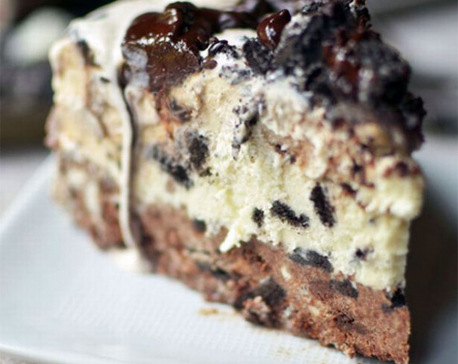
OR

Why a bit of cocoa every day really does boost your mind, heart and mood?
Health benefits of chocolate
It's not all about self-indulgence, guilt and overweight as research suggests there may be many positive health benefits to eating chocolate, which includes your heart and brain.
The health benefits stem from cocoa and not chocolate as such, which is made by adding sugar and fat.
The rawest forms of cocoa are cocoa powder and raw cacao, which contain the greatest concentration of goodness without the added sugar.
Attributing any health benefits to chocolate means sticking with dark varieties that contain more than 70 percent cocoa.
Cocoa is a rich source of minerals including magnesium (helps to maintain healthy bones and promote muscle relaxation), iron (helps to maintain healthy red blood cell production) and zinc (helps to make new cells in the body).
You'll also find more antioxidants in cocoa than almost any other food on the planet.
These antioxidants are called flavanols and are at the root of many of the findings from research linking cocoa to disease protection, some of which has shown to be promising.
Advances in innovation have seen a rise in functional chocolate products with added health benefits, adding 'super fruit' acai and even probiotics.
How does it affect... mood?
Cocoa increases the levels of several chemicals in the brain that are linked to mood.
Phenylethylamine (PEA) is one such chemical that has been shown to boost mood as does tryptophan that is converted to the 'feel good' hormone serotonin.
Cocoa also contains theobromine, which is similar in effect to caffeine but without the jittery side-effects.
These three chemicals together may explain why chocolate is considered to be so addictive.
How does it affect... heart disease?
The flavanols in cocoa are thought to dilate the arteries, which improves elasticity and may reduce the risk of heart attack.
The effect of these antioxidants is also thought to be similar to aspirin in that they help to thin the blood and prevent unwanted clots with research showing that the effect after drinking a cup of cocoa lasting more than six hours.
Findings from a large analysis of seven studies carried out by researchers at Cambridge University found that both men and women with the highest intake of cacao/dark chocolate were 37 percent less likely to suffer with coronary heart disease and 29 percent less likely to experience a stroke compared to those with the lowest intakes.
How does it affect... blood pressure?
Research around blood pressure stems from islanders of Kuna that don't appear to develop high blood pressure as they get older, which is in part attributed to the high amounts of cocoa they consume on a daily basis.
It was noticed that once thy left the island and consumed less cocoa they lost the protective effect on blood pressure.
The link between cocoa and blood pressure is that the flavanols it contains increase the availability of nitric oxide in the blood, which dilates blood vessels and lowers blood pressure.
Researchers from Adelaide University found that drinking cocoa (rich in flavanols) significantly lowers blood pressure when compared to a flavanol-free placebo drink.
How does it affect... brain health?
According to findings published in the New England Journal of Medicine, countries with the high consumption of chocolate produce more Nobel Prize winners per head of population than those eating less but this doesn't mean chocolate makes you brainy!
Various studies have shown that drinking cocoa at least five days of the week boosts the flow of blood to the parts of the brain that help with cognition and can improve performance and alertness.
The antioxidants in cocoa also help to neutralize the low-grade inflammation associated with 'foggy' thoughts.
Studies of older people that are mentally impaired have found that those who regularly drank cocoa had greater improvements in memory and verbal reasoning than those who did not.
It's for this reason that cocoa has been of interest to researchers investigating dementia.
You May Like This

Eating chocolate cake for breakfast is good for you and could even help you lose weight, claims expert
According to the culinary director, we'll all be tickling our taste buds with the wonder that is chocolate a little... Read More...

If you are lucky, you will find the heart to listen to you!
Stress has become the go-to word for everyone in the modern word. It has become the reason for being unnecessarily... Read More...

Karki is innocent until she is indicted and parliament approves the indictment
The impeachment motion against Chief Justice Sushila Karki on Sunday shocked the country. This was because Chief Justice Karki was... Read More...




Just In
- Health ministry to conduct ‘search and vaccinate’ campaign on May 13
- Indian customs releases trucks carrying Nepali tea, halted across Kakarbhitta
- Silent period for by-election to begin from midnight
- SC issues short-term interim order to govt and TU not to take immediate action against TU legal advisor Khanal
- National consultation workshop advocates to scale up nutrition smart community in Nepal
- Patan High Court issues short-term interim order to halt selection process of NTB’s CEO
- NEPSE inches up 0.15 points; daily turnover increases to Rs 2.53 billion
- Bagmati Govt mandates tri-lingual signboards in offices














Leave A Comment